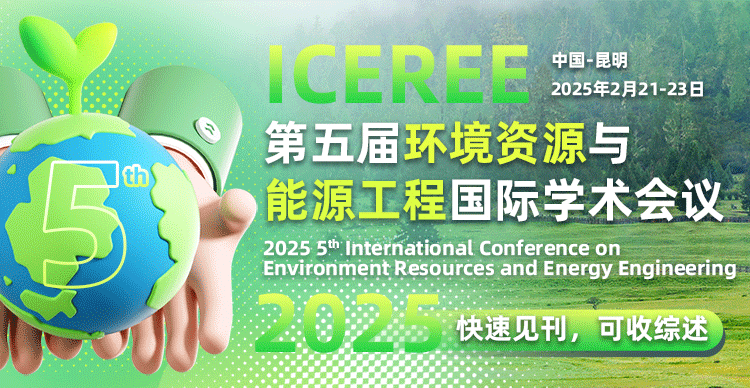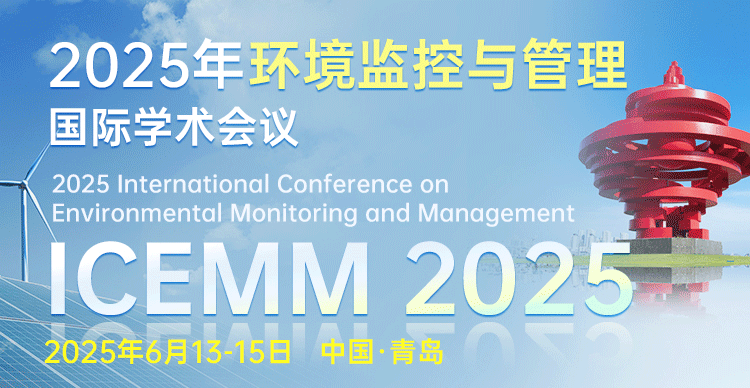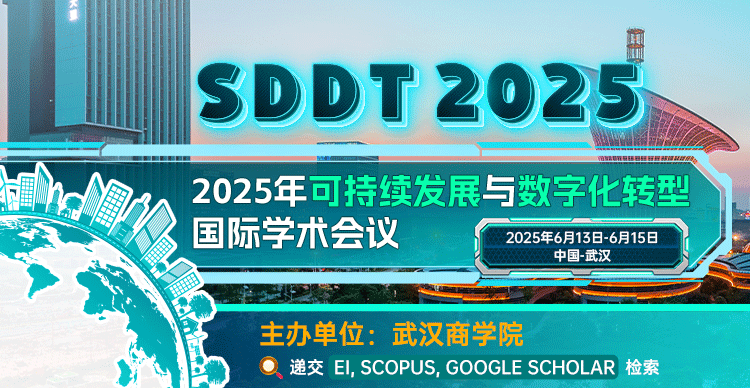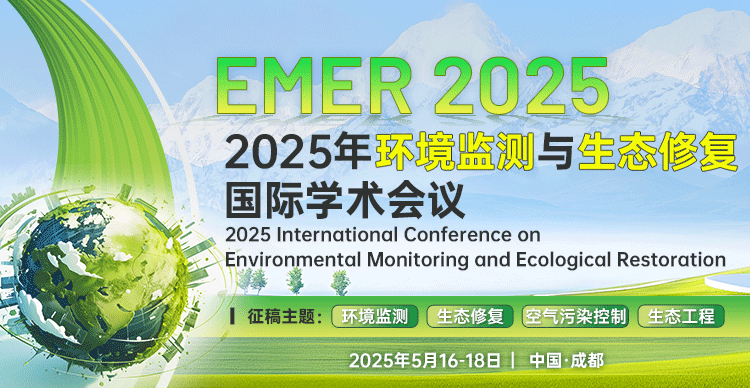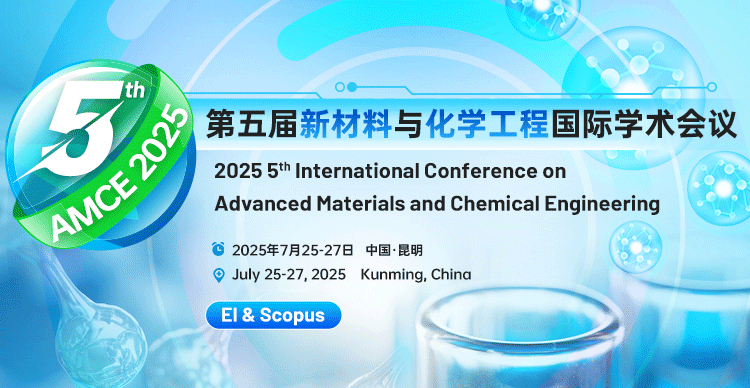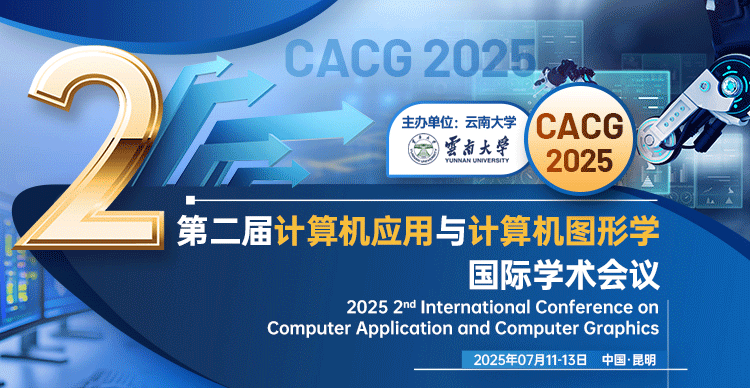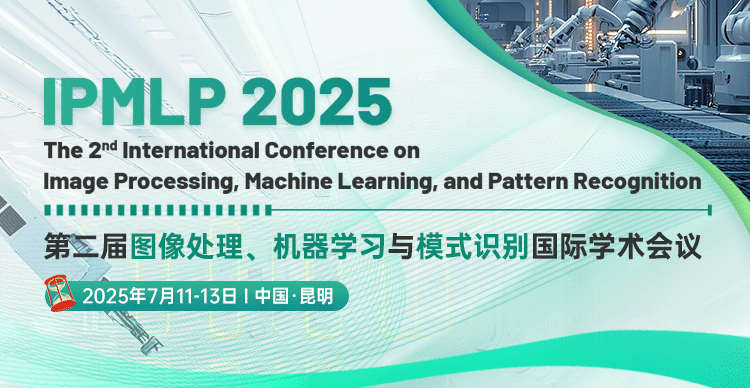第五届环境资源与能源工程国际学术会议
2025 5th International Conference on Environment Resources and Energy Engineering
会议简介
随着过去四年成功举办的经验,第五届环境资源与能源工程国际学术会议(ICEREE 2025)将于2025年2月21日至23日在中国昆明隆重举行。主要围绕“能源工程和能源技术”、“环境科学和环境工程”等研究领域展开讨论。旨在为能源资源与环境工程的专家学者及企业发展提供一个分享研究成果、讨论存在的问题与挑战、探索前沿科技的国际性合作交流平台。欢迎国内外学者踊跃投稿和参与。
主讲嘉宾(2024)
Ahmad Zuhairi Abdullah,教授
马来西亚理科大学,马来西亚
Abdul-Sattar Nizami,教授
拉合尔政府学院大学,巴基斯坦
Zawawi Bin Daud,副教授
马来西亚敦胡先翁大学, 马来西亚
征稿主题
征稿包括但不限于以下研究主题:
资源与环境工程
地下水修复、地下水管理、水资源与流域管理、管理实践,水质目标标准制定,水质分类、污水及污泥处理、污泥处理及再利用、全球变暖、臭氧层损耗、碳捕获和储存、生物燃料、空气污染及控制、空气排放贸易、固体废物管理、收集系统的优化、回收和再利用、废物稳定物价、资源管理、处理和处置方法的技术层面(堆填、热处理等)、危险固体废物的管理、社会和环境的可持续性等
能源工程
可再生能源、太阳能、生物质能、风能、波浪和潮汐能源、地热能、核能、生物能源、氢气和燃料电池、能源材料、能源管理系统、能源的开发与利用、核能源工程、生物柴油燃料、光伏系统与太阳能工程、风能发电、太阳能电池技术、供能方案设计与优化、能源产业政策、能源政策装备技术、
节能技术、煤矿工程与技术、能源存储技术、能源安全和清洁利用 、矿产资源与采矿工程、能源设备与能源管理、能源转换与能源效率、新能源汽车、油气资源工程、混合能源系统、石油和天然气开发的新技术等
论文出版
所有的投稿论文都必须经过2-3位组委会专家审稿,经过严格的审稿之后,最终所有录用的论文将计划由E3S Web of Conferences (ISSN: 2267-1242)会议论文集出版,出版后由出版社提交至CNKI知网、EI Compendex、Scopus等数据库收录。
Welcome to ICEREE 2025
2025 5th International Conference on Environment Resources and Energy Engineering (ICEREE 2025) will be held in Kunming China from February 21-23 2025.
The conference mainly focused on the research areas of “energy engineering and energy technology“ “environmental science and environmental engineering“ “power supply system“ “water conservancy engineering“ and so on. It aims to provide an international cooperation and exchange platform for energy resources and environmental engineering experts scholars and enterprises to share research results discuss existing problems and challenges and explore cutting-edge technologies. Scholars at home and abroad are welcome to contribute and attend the conference.
Important Dates
Full Paper Submission Date
November 18 2024
Registration Deadline
December 19 2024
Final Paper Submission Date
January 13 2025
Committee of 2024General Chair
Prof. Dr. Thanikaivelan Palanisamy
CSIR-Central Leather Research Institute Chennai India
BIO: Thanikaivelan Palanisamy is a Senior Principal Scientist at Central Leather Research Institute Chennai since 2002. He has founded the Advanced Materials Laboratory and currently heading. He received PhD in leather technology from Anna University in 2003. He had two post-doctoral stints at Texas Tech University USA and Rice University USA under BOYSCAST and Fulbright-Nehru fellowships in 2005-06 and 2010-11 respectively. He specialized in cleaner leather processing and zero discharge technologies. He currently works on the development of new and advanced materials including nano bio and composite materials especially from bio-wastes generated from leather industry for high-value applications in Healthcare Environment Lifest
PublicationChair
Prof. Dr. Abdul-Sattar Nizami
Sustainable Development Study Centre (SDSC) Government College University Lahore Pakistan
BIO: Dr. Abdul-Sattar Nizami has Master of Science in Engineering from the Chalmers University of Technology Sweden. He has a Ph.D. in Sustainable Gaseous Biofuel from University College Cork Ireland. He worked at the University of Toronto Canada as a Postdoctoral Fellow on alternative fuels and life cycle studies. Later he served as an Assistant Professor and Head of Solid Waste Management Unit at the Center of Excellence in Environmental Studies of King Abdulaziz University Jeddah Saudi Arabia. He is currently working as a Professor (Associate) at Sustainable Development Study Centre Government College University Lahore Pakistan.
He has published over 150 papers on renewable energy alternative fuels waste-to-energy catalytic pyrolysis anaerobic digestion and resource recovery. He has delivered 46 invited talks to various national and international forums. His work has been cited more than 10 thousand times in the peer-review press with a total impact factor over 1100 and H-index of 55.
He is a Senior Editor in Renewable & Sustainable Energy Reviews (Elsevier Impact Factor 16.8) Energy & Environment (Sage Impact Factor 3.15) and Frontiers in Energy Research (IF 4.01). He serves as an Editorial Board Member in Bioresource Technology Reports (Elsevier) and Energy Sources Part B (Taylor & Francis IF 3.21). He is actively involved in community and consultation services to various international organizations including theEuropean Commission ba
Prof. Dr. Zawawi Bin Daud
Faculty of Civil and Environmental Engineering Universiti Tun Hussein Onn Malaysia Malaysia
BIO: Dr. Zawawi Daud works as an Associate Professor at Faculty of Civil and Environmental Engineering Universiti Tun Hussein Onn Malaysia. Born and trained in Malaysia he has a bachelor’s degree in Civil Engineering (University of Technology Malaysia) a master’s in Civil Engineering (Environment) (University of Technology Malaysia) and a doctorate in Environmental Engineering (University of Science Malaysia). Dr. Zawawi teaches various courses related to environmental engineering management and science at undergraduate and masters levels. These include water and wastewater treatment biological and physico-chemical treatment processes sludge management industrial and hazardous waste management and water quality management. Dr. Zawawi’s research focuses on alleviating problems associated with water pollution issues from industrial wastewater and landfill leachate. His latest interest is on natural adsorbent material in water and wastewater treatments.
Technical Program CommitteeChair
Prof. Dr. Ahmad Zuhairi Abdullah
School of Chemical Engineering Universiti Sains Malaysia Malaysia
BIO: Professor Dr Ahmad Zuhairi Abdullah received his B. Tech (Hons) MSc and PhD in 1995 2000 and 2004 respectively. He was the Deputy Dean (Industry and Community Network) at School of Chemical Engineering Universiti Sains Malaysia between 2010-2012 and Deputy Dean (Research and Postgraduate Studies) between 2013-2018. He will also serve his deanship of the school in 2022-2024. He is registered as a Professional Technologist at Malaysian Board of Technologists (MBOT) and a Fellow Member of Institut Kimia Malaysia. His research works mostly involve the use of ordered porous materials in oleochemical reactions renewable energy waste treatment and waste valorization. He has nearly 300 refereed publications in journals and book/book chapters mainly as the main author and also involves as a technical committee member to nearly 150 international scientific conferences. He is often invited to share his research experiences in international conferences held in Malaysia Laos Indonesia Vietnam Pakistan The Philippines and China. In addition he is an evaluator for research proposals from different agencies locally as well as from several international scientific bodies in the USA Oman Qatar Kazakhstan and Chile. He is also an expert panel of the Department of Environment Malaysia for the evaluation of Environmental Impact Assessment reports for various proposed projects related to petrochemical complexes paper mills me
Conference Committee Members
Prof. Dr. Qin Xiaosheng
Nanyang Technological University Singapore
Dr. Chamindra Vithana
Southern Cross University Australia Australia
Prof. Dr. Mohammad Russel
Dalian University of Technology China
Dr. Aziz-Ur-Rahim Bacha
Fudan University China
Prof. Dr. Wan Mohd Faizal Bin Wan Ishak
University Malaysia Kelantan Malaysia
Prof. Dr. Qian Xu
Jiangsu University China
Prof. Dr. Riyang Shu
Guangdong University of Technology China
Prof. Dr. Jinhui Zhao
Zhengzhou University China
Prof. Dr. Yi Liang
Hebei GEO University China
Prof. Dr. Tiankui Guo
China University of Petroleum China
Tingting Zhou
Chn energy technology&environment limited China
Prof. Dr. Rongkui Su
Central South University of Forestry and Technology China
Call For Papers
The topics of interest for submission include but are not limited to:
Resources and Environmental Engineering
- Water Resources Management and Water Pollution Control
· Hydrology
· Physical oceanography
· Ground water remediation
· Water resources and river basin management
· Regulatory practice water quality ob
· Ground water management
· Wastewater and sludge treatment
· Nutrients removal
· Suspended and fixed film biological processes
· Anaerobic treatment
· Sludge treatment and reuse
· Fate of hazardous substances
- Atmospheric Science and Air Pollution Control
· Atmospheric physics
· Meteorology
· Climate and climatic changes
· Global warming
· Ozone la
· Carbon capture and storage
· Biofuels
· Air pollution and control
· Emission sources
· Atmospheric modeling and numerical prediction
· Interaction between pollutants
· Air emission trading
· Indoor air pollution
- Solid Waste Pollution Control and Resource Utilization
· Solid waste management
· Waste minimization
· Optimization of collection systems
· Recycling and reuse
· Waste valorization
· Resource management
· Technical aspects of treatment and disposal methods (landfilling thermal treatment etc)
· Leachate treatment
· Legal economic and managerial aspects of solid waste management
· Management of hazardous solid waste
? Energy
- Clean and Renewable Energy
· Development and Utilization of Solar Energy
· Development and Utilization of Biomass Energy
· Development and Utilization of Wind Energy
· Nuclear Energy Engineering
· Bio-diesel fuels
· Photovoltaic Systems and Solar Energy Engineering
· Wind Energy Generation
· Renewable Energy Grid
· Wind resources environmental impact
· Environmental impact assessment
· Photovoltaic Technology
· Solar cell technology
- Energy Policy Planning & Management
· Energy conservation and energy recovery
· Energy development & investment policy
· Energy Economics
· New energy policy
· Energy security policy
· Energy demand forecast
· Design and optimization of energy supply scheme
· Energy industry policy
· Energy policy equipment technology
· Energy price tax and credit policy
· Energy consumption policy
· Energy import and export policy
Publication
All accepted full papers will be published in the conference proceedings and will be submitted to EI Compendex / Scopus for indexing.
Note: All submitted articles should report original research results experimental or theoretical not previously published or under consideration for publication elsewhere. Articles submitted to the conference should meet these criteria. We firmly believe that ethical conduct is the most essential virtue of any academics. Hence any act of plagiarism or other misconduct is totally unacceptable and cannot be tolerated.

